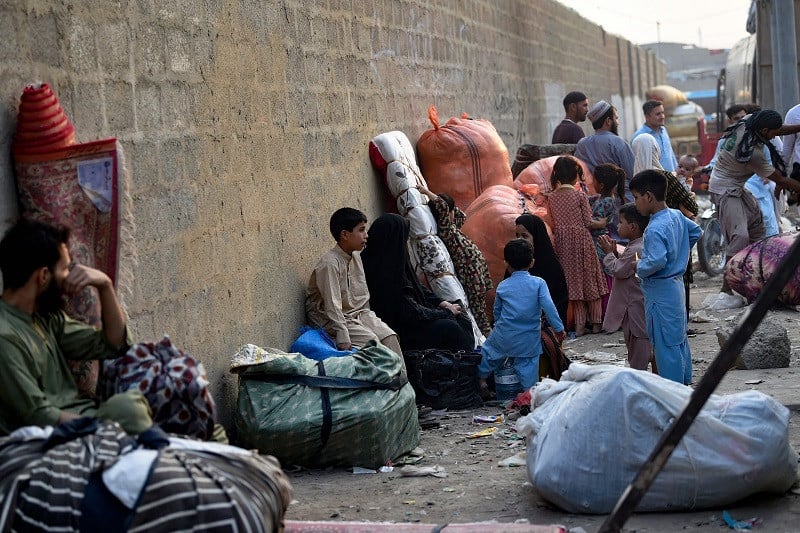The Federal Investigation Agency (FIA) has deployed eight special teams to manage the deportation of Afghan refugees in Punjab. Of these, five teams are assigned to Lahore. The remaining three will operate in Sheikhupura, Nankana Sahib, and Kasur.
According to the FIA spokesperson, the Lahore unit will be supervised by Assistant Director Sajid Amin. Imran Bhatti will head the Sheikhupura team, while Babar Shaharyar will take charge in Nankana Sahib. Assistant Director Immigration Rana Bilal will lead the Kasur operations.
The Afghan refugees in Lahore will first be taken to temporary shelters before their repatriation. These shelters include Thokar Niaz Baig, Railway Station, Data Darbar, Sabzi Mandi, and Lari Adda.
This move aligns with the federal government’s policy to expel all undocumented foreigners, especially illegal Afghan nationals.
Pakistan has hosted millions of Afghan migrants over the past five decades. Many have already returned home in recent years. However, more than 2.1 million remain, particularly in Khyber Pakhtunkhwa (KP) and other regions.
Sources from the Ministry of States and Frontier Regions (Safron) confirm that 1.4 million Afghan refugees are officially registered. Around 800,000 hold Afghan Citizen Cards (ACC). Their legal status has now expired. These cardholders, like other undocumented individuals, are being deported.
The deadline set by the Pakistani government for all such Afghan citizens to leave was March 31. Rising security concerns, including increased incidents of terrorism, prompted the decision.
So far, Punjab has deported at least 4,111 illegal residents with assistance from various institutions. According to the Punjab Police, over 5,950 people have been shifted to temporary centres. As of now, 1,839 are still housed there.
Across Punjab, 46 holding centres have been established. Lahore alone has five of them.
Inspector General of Punjab Police Usman Anwar reaffirmed the government’s determination. He stated that every undocumented immigrant will be sent back. He emphasized that the repatriation process strictly follows human rights protocols.
The IGP directed all senior officers—CCPOs, RPOs, and DPOs—to speed up the operation. He ordered thorough mapping, scanning, and screening of every individual involved.
The government classifies Afghan refugees in Pakistan into four categories:
Category One: These are refugees who escaped Afghanistan due to war and conflict. In 2007, they were issued Proof of Registration (PoR) Cards. Their population is now close to 1.3 million. The cards remain valid until June 30, 2025.
Category Two: This group includes 800,000 Afghans who received Afghan Citizen Cards in 2016. They are being repatriated under the current expulsion plan.
Category Three: These are asylum seekers who fled after the Taliban took over in 2021. Pakistan initially reported 600,000 arrivals. But the UNHCR has verified only 200,000 as officially registered.
Category Four: These include unregistered Afghans. They have no PoR or ACC. Some of them married in Pakistan and obtained fake Pakistani IDs. The National Database and Registration Authority (NADRA) has been cancelling such fraudulent documents. These individuals are now considered illegal residents.
The total number of Afghan refugees in Pakistan stands at nearly three million. All of them are expected to return to Afghanistan this year under the government’s deportation policy.


